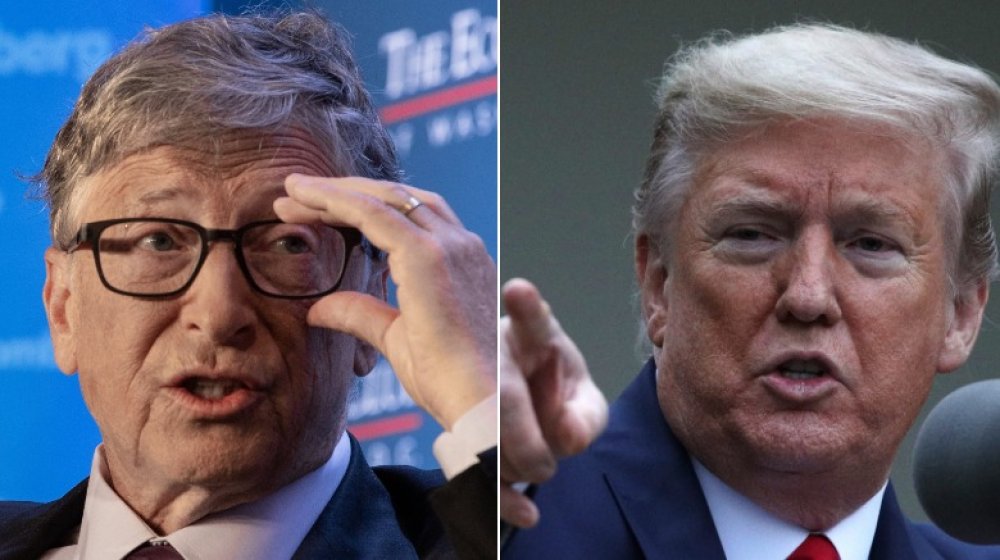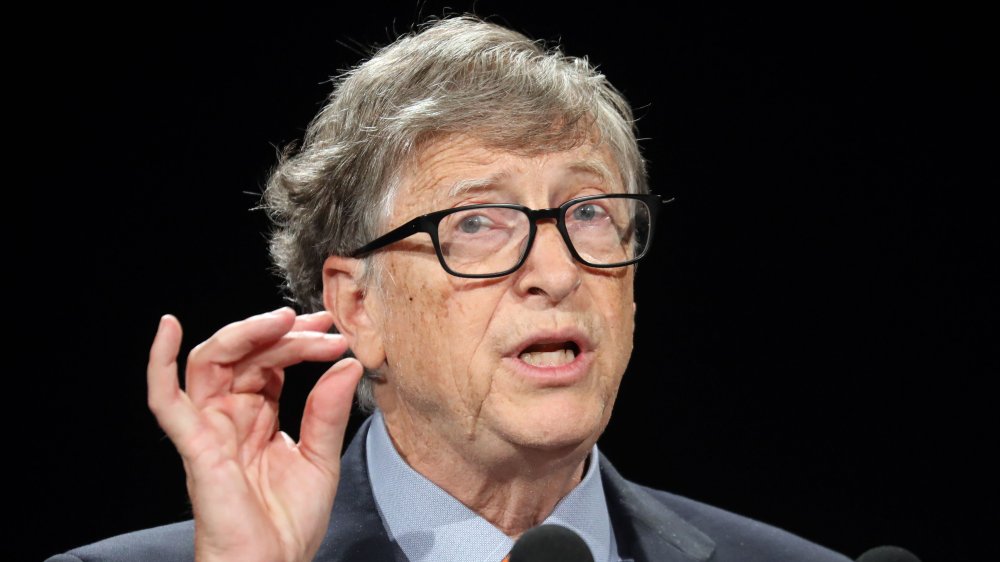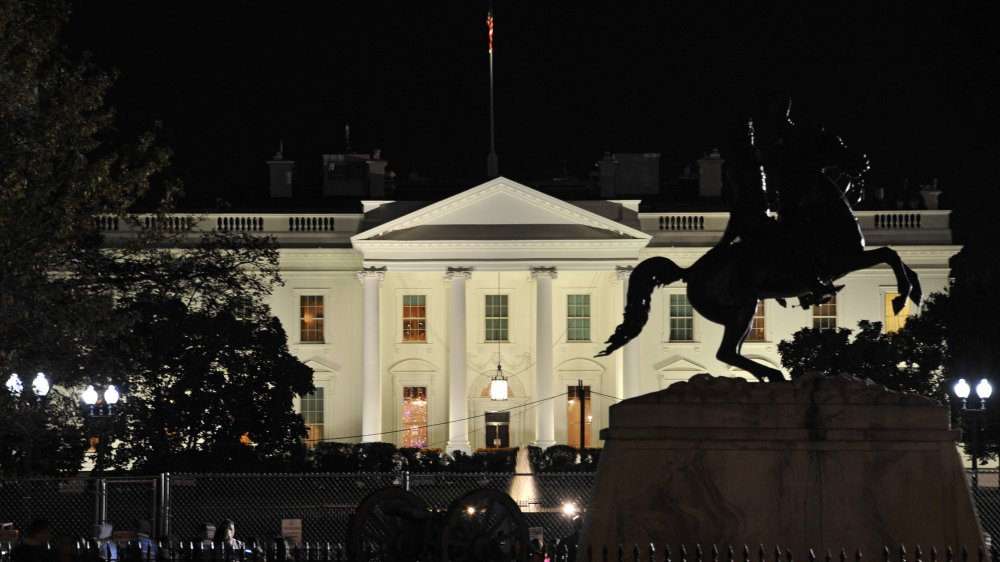What Bill Gates Said When Trump Asked Him To Be His Science Advisor
The first three years of the Trump administration have been notable for a number of reasons. In 2019, the United States saw its lowest level of unemployment since the Nixon administration. Then, in early 2020, the country experienced the largest spike in unemployment claims in history, according to the Washington Post. It's been a mixed bag, to put things mildly.
And the job market hasn't been any less tumultuous within the walls of the White House, where record breaking, headline catching turnover amongst the president's appointees has overshadowed the impressive number of posts left unfilled. As recorded by the Partnership for Public Service, out of 749 key positions, there are 150 for which the Trump administration has yet to nominate a candidate.
Finding the right person for any job is hard, or at least that's what the ad breaks during podcasts keep claiming, and the White House seems to have had a particularly difficult time pinning down a Science Advisor to the President. During the previous administration, the position went to John Holdren, a Harvard professor and MacArthur Fellowship "genius grant" recipient with a PhD from Stanford. He was sworn in two months after Obama took office and stuck around until the end of the 44th president's eight year term.
In contrast, it took two years for the Trump White House to appoint a science advisor, with the seat remaining vacant from January of 2017 until January of 2019.
Trump v Gates: Dawn of Complicated Hiring Process
It's not that there wasn't a push to fill the chair. In at least one case, there was even a level of nerdy celebrity that would make the casting director on Big Bang Theory collapse breathlessly onto their Deep Space Nine themed fainting couch.
In an interview with Stat News, Microsoft founder and dad jeans demigod Bill Gates recounted a meeting with President Trump which took place in March of 2018. According to Gates, he met with the president to discuss the possibility of — and this is fun — a future crisis caused by a viral pandemic.
Specifically, Gates was concerned that a new strain of flu might develop, and was pushing for federal backing towards research for a universal influenza vaccine. Gates has been passionate about the project for some time, stating in a TEDtalk from 2015 that "if anything kills over 10 million people in the next few decades, it's most likely to be a highly infectious virus." Since then, the Bill and Melinda Gates Foundation has created $12 million in grants towards researching an across-the-board inoculation against the flu.
Of his conversation with President Trump, Gates said "One thing's for sure: No matter what your framework is, even if it's that human benefits outside the country count for zero, stopping pandemics is a smart thing." During the discussion, he reportedly asked the commander in chief why he hadn't yet appointed a science advisor, and claims that Trump offered him the job on the spot.
Duel of the Gates
By Gates' account, he declined the position, stating "That's not a good use of my time." To be fair, according to the Hill, he also "didn't put (Trump) to the test, whether that was a serious thing or not ... (Trump) probably himself didn't know if he was serious. It was a friendly thing. He was being friendly." On the up side, he did describe the president as being "super interested" in developing a universal flu vaccine.
Since then, Gates and Trump have butted ideological heads over the subject of infectious diseases. Over the course of the coronavirus pandemic of 2020, the tech mogul has been vocal in his disapproval of the president's actions. In March, Vox reported that he said of Trump's hope to reopen the country's businesses by mid-April "bringing the economy back ... that's more of a reversible thing than bringing people back to life." He also compared doing so to saying "'Hey, keep going to restaurants, go buy new houses, ignore that pile of bodies over in the corner. We want you to keep spending because there's maybe a politician who thinks GDP growth is all that counts.'" A month after leaving Microsoft, in response to Trump's decision to defund the World Health Organization, Gates took to Twitter, saying "Halting funding for the World Health Organization during a world health crisis is as dangerous as it sounds. Their work is slowing the spread of COVID-19 and if that work is stopped no other organization can replace them."


